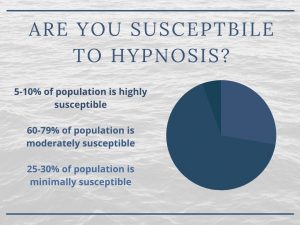For roughly 3 million Americans, stuttering is a daily struggle. Stuttering can be very frustrating, and treatment for it can be expensive, because it requires ongoing therapy. But this National Stuttering Awareness Week (May 10–15), we want to talk about treatment, and let you know that EZ can find a plan that meets your needs, so you don’t have to worry about paying for your treatment out-of-pocket.
Stuttering Explained

Stuttering is a speech disorder that is marked by the involuntary repetition of sounds, syllables, or words, or interruptions in speech known as blocks. If you have a stuttering problem, you know exactly what you want to say but will have a hard time saying it. You might also experience rapid blinking of your eyes or tremors of the lips.
Stuttering can affect people of all ages, but is most often seen in children ages 2-6; boys and men are two to three times as likely to stutter as are girls and women as they get older. Approximately 75% of children outgrow their stutter, but for the remaining 25%, it can continue well into adulthood.
Causes of Stuttering
Stuttering can be either a developmental or neurological issue. Developmental stuttering is the most common form of stuttering, and according to scientists and doctors, it generally occurs when a child’s speech and language abilities are unable to meet what they are trying to say.
While developmental stuttering can be genetic, stuttering can also be caused by other factors, such as a stroke, head trauma, or brain injuries. This is known as neurogenic stuttering, a condition in which the brain has a difficult time coordinating the regions of the brain involved in speaking.
Treatment for Stuttering
Unfortunately, there is no one “cure” for stuttering, but that doesn’t mean that it can’t be treated or outgrown with time. There are a variety of treatments, depending on several factors such as age and communication goals. Therapy can help you minimize stuttering when talking by teaching you to speak more slowly, to focus on regulating your breathing, and to progress from single-syllable responses to longer words.
There are medications that are used to treat stuttering, but the U.S. Food and Drug Administration (FDA) has not approved them for that purpose. Medications for epilepsy, anxiety, or depression have been used to treat stuttering, but side effects can make it difficult to keep using them for a long time.
Finding Health Insurance Coverage
One of the most important factors in getting the help you need for your stutter is your health insurance plan. Before purchasing a plan, make sure you understand what coverage it offers, and make sure it will cover evaluation and treatment for stuttering. Some policies will list stuttering as a specific exclusion, and will not cover treatment for stuttering treatment and therapies, so you’ll need to look at the specific language of your policy. For example, it might say that treatment is only covered when it involves “restorative and rehabilitative care or treatment for loss of impairment of speech when the treatment is medically necessary because of an illness, injury or surgery.”
If all of this sounds a little confusing, and you’re not sure what plan is right for you, speak to an EZ agent! EZ agents are highly trained and knowledgeable, and will sort through all available plans to make sure that stuttering is covered in yours.
We offer a wide range of health insurance plans from top-rated insurance companies in every state. And because we work with so many companies, and can offer all of the plans available in your area, we can find you a plan that saves you a lot of money – even hundreds of dollars – even if you don’t qualify for a subsidy. There is no obligation, or hassle, just free quotes on all available plans in your area. To get free instant quotes, simply enter your zip code in the bar above, or to speak to a local agent, call 888-350-1890.










